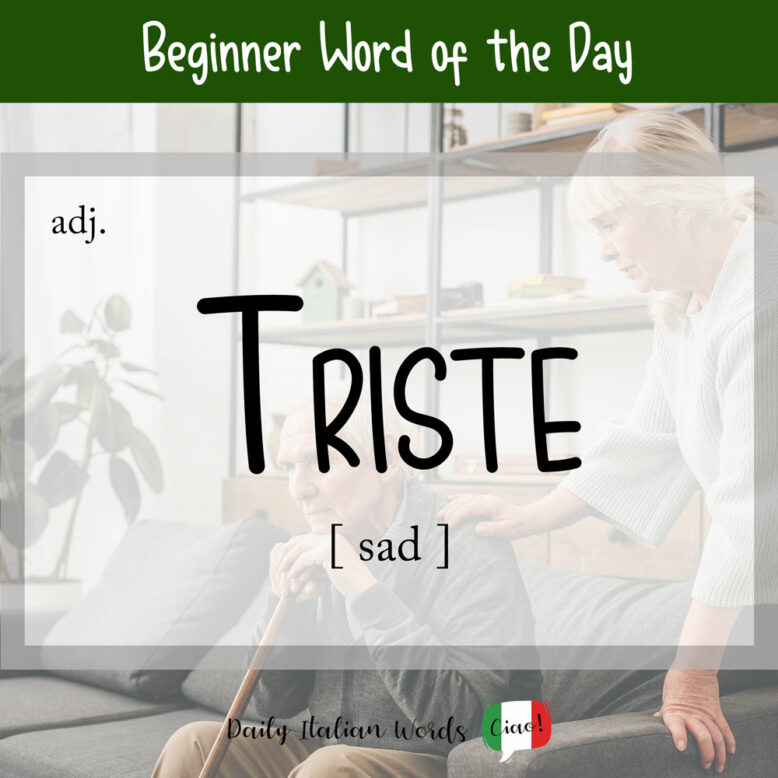The word for sad in Italian, which comes from the Latin tristis, is triste.

Like all other adjectives that end in e, the ending of triste stays the same regardless of whether the subject is masculine or feminine. In its plural form, it becomes tristi.
È una situazione molto triste per tutte le persone coinvolte.
It is a very sad situation for everyone involved.

There are a handful of verbs you’ll frequently see used with adjectives that describe emotions such as triste. These include:
essere triste
to be sad
Sono triste di dovermene andare.
I’m sad that I have to leave.
sentirsi triste
to feel sad
Mi sento triste oggi.
I feel sad today.
diventare triste
to become sad
Divento triste facilmente.
I become sad easily.
rendere triste / far diventare triste
to make sad
Mi ha reso / fatto diventare molto triste.
It made me very sad.
If you wish to comment on the appearance of someone who looks melancholy, another very common verb people use is vedere (to look, to see).
Ti vedo triste stamattina. È successo qualcosa?
You look sad this morning. Did something happen?
(Literal translation: I see you sad this morning.)
You might also describe them as having un’aria triste (a sad air/vibe).
Il ragazzo che abita sopra di noi ha sempre un’aria triste.
The boy who lives above us always looks sad.

Other members of the “triste family” of words include:
- tristemente = sadly
- in modo triste = in a sad way / manner
- tristezza = sadness
- trista = an obsolete term with various meanings including sad, wretched, wicked, poor and sinister; still used in fixed literary expressions such as una trista figura (a miserable impression) or gente trista (wicked people)
If you’re keen on expanding your vocabulary, here are a few useful synonyms for triste: depresso (depressed), infelice (unhappy), malinconico (melancholy), mesto (miserable), and dispiaciuto (displeased).
Heather Broster is a graduate with honours in linguistics from the University of Western Ontario. She is an aspiring polyglot, proficient in English and Italian, as well as Japanese, Welsh, and French to varying degrees of fluency. Originally from Toronto, Heather has resided in various countries, notably Italy for a period of six years. Her primary focus lies in the fields of language acquisition, education, and bilingual instruction.


